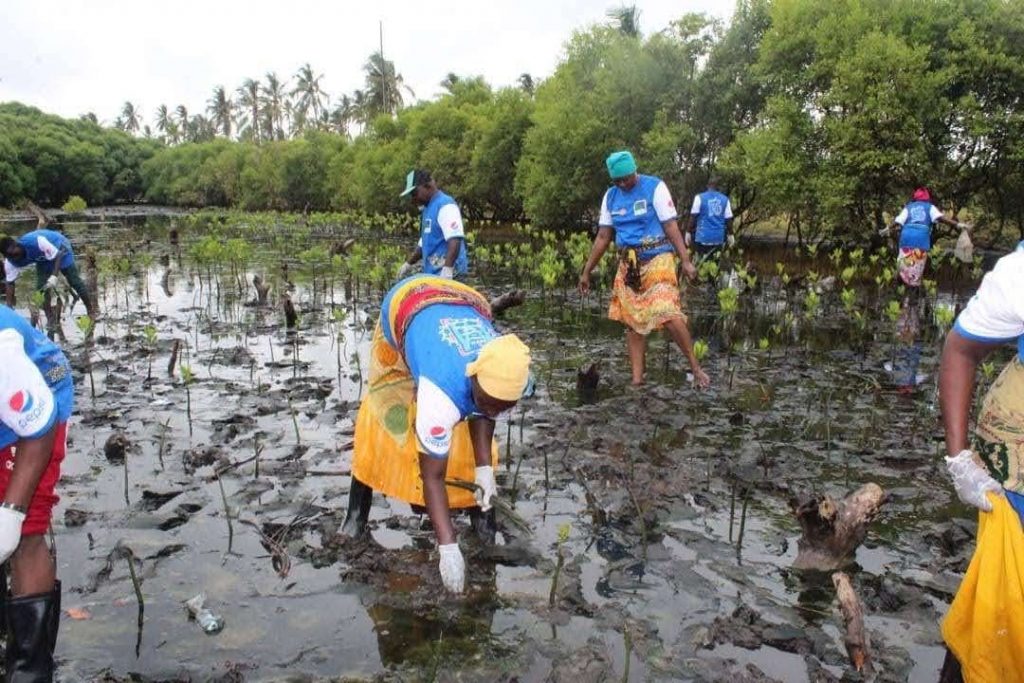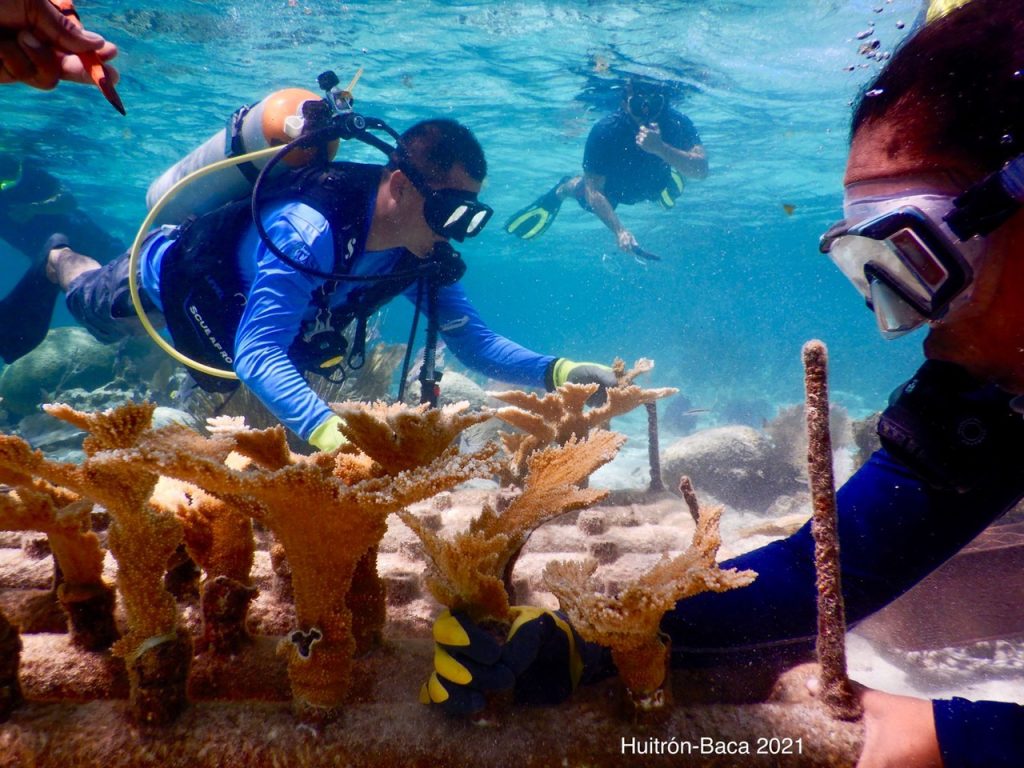Karen Sack from the Ocean Risk and Resilience Action Alliance shares examples from around the world where locally-led action is protecting the ocean and nature, and helping communities to adapt and thrive.
This is the eighth story in the Windows on Resilience series produced by CDKN and the Resilience Knowledge Coalition for the COP26 Resilience Hub – a physical and virtual space at COP26 dedicated to sharing best practice and building collaboration, momentum and new opportunities on adaptation and resilience. This story series shares practical and inspiring resilience solutions from communities and countries around the globe. Register for the Resilience Hub here.
A healthy Ocean and a stable climate are two sides of the same coin. The latter is impossible without the former. Yet, the Ocean, one of the planet’s greatest assets, is in crisis. Heating, leading to extreme weather events, sea-level rise, and adverse and significant ecosystem changes as well as pollution, overfishing, rising levels of acidity and biodiversity loss – all jeopardise the health of the Ocean.
This is putting the food security and economic and social resilience of more than 3 billion people at risk. Small Island Developing States (SIDs) and coastal Least Developing Countries (LDCs) are on the frontline of climate change and in particular danger. Given the ‘coupled complex risks’ facing SIDS and coastal LDCs, such as climate change vulnerability and external social-political factors, their livelihoods, way of life and community cohesion is at risk.
The role of the Ocean Resilience Action Alliance (ORRAA) www.oceanriskalliance.org is to support efforts to address ocean risk and support coastal and marine resilience. To achieve this, we are accelerating action to pioneer new and innovative financial products and projects that will support nature-positive solutions–fundamental to tackling the threat of climate change, protecting biodiversity and building resilience. We convene the finance and insurance sectors, governments, environmental organisations and climate adapters from the global South to the North. Our purpose is to drive investment into coastal and marine natural capital, to the tune of US$500m by 2030, mitigate risk, and support resilience building in communities adapting to climate change. With marine engineers, Van Oord, ORRAA is the joint coastal pillar lead of the COP26 Resilience Hub
We work with partners, including community-based leaders across the world to develop new ways of including these solutions into the sustainable finance equation. Projects supported are already positively changing the economic prospects of coastal communities and demonstrate how such locally-led initiatives can help these communities to adapt and thrive.
Examples include Aqua Farms Organisation (AFO) in Tanzania, which has created a Voluntary Mangrove Community Credit Market (VMCCM) within the Mbweni and Kunduchi communities on the outskirts of Dar-es-Salaam. Early on in the project, AFO worked with local women’s groups to train them on replanting mangroves, including how to select the best species and plant them using techniques based on traditional ecological knowledge. Since 2018, over 13,000 mangrove seedlings have been successfully replanted across four hectares of mangroves both at the Mbweni and Kunduchi sites. In its first 20 years, the project will enable the capture of 60,000 tonnes of carbon dioxide. Beyond incentivising the restoration of precious ecosystems, the project will directly benefit the community by ensuring the funds raised go to finance village facilities, such as water wells and education equipment.

In the Caribbean, we are working with partners to protect the Meso-American Reef (MAR) which stretches across the coastlines of Mexico, Belize, Guatemala and Honduras with new insurance-based products to support local communities and defend and protect natural ecosystems. Vitally important to coastal communities down this stretch of Central America, the Reef is estimated by the InterAmerican Development Bank to provide annual environmental services worth US$183 million in fisheries, US$3.9 billion in tourism, and US$320 to US$438 million in coastal protection. Yet given the growing strength and intensity of extreme weather events it is in increasing danger, placing the lives and livelihoods of millions at risk.
To protect this critical resource on a sustainable basis, ORRAA partners, Willis Towers Watson (WTW) and the MAR Fund have created a parametric insurance programme that models hurricane risk and offers cost-effective cover to finance prompt, community-led repairs at four pilot sites along the reef.

These and other examples show that with the right will and creative thinking it is possible to achieve the transformative change needed to empower coastal communities and enable them to identify their own sustainable pathways. It is with this in mind that ORRAA has initiated the #BackBlue Ocean Finance Commitment aimed at mobilising action from private sector and civil society stakeholders, building resilience and protecting biodiversity. Learn more about this important initiative here:
Join us at COP26
If you would like to hear directly from those leading these projects and discuss innovative ways of building resilience to mitigate the impacts of climate change and help coastal communities to adapt, please sign in or join our event, ‘Ocean action is climate action: Accelerating resilience to secure a sustainable future for coastal communities’, in person in the Resilience Hub on 8 November at 12.00 -13.30 GMT.
Karen Sack is the Executive Director of ORRAA and CEO and President of Ocean Unite, a non-profit founded in 2015 with a mission to deliver the science-based target of strongly protecting at least 30% of the Ocean by 2030 and build resilience globally. She was formerly Senior Director at Pew Charitable Trusts where she initiated the Global Ocean Commission. Before that she was the Head of Greenpeace International’s Political & Business Unit and of their international oceans campaign.

